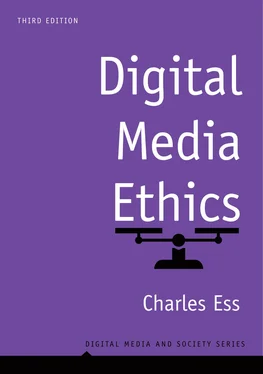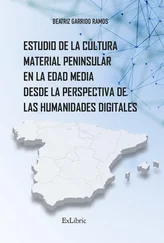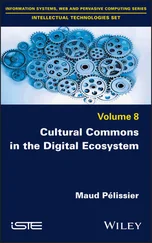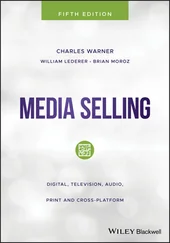(A) How do you respond to this set of problems? That is, does it sometimes seem justified for groups such as Anonymous to intervene in such cases – i.e., when the legal authorities initially appeared to lack the technical sophistication needed to track down stalkers such as the one who pursued Amanda Todd? And/or: might the risks of such “trial by Internet” – beginning with the erroneous accusation of the wrong person – outweigh its possible benefits (such as – occasionally – getting the right person when the authorities can’t)?
Again, the key point is to provide support for your claims and observations, beginning with evidence (e.g., how often does a group such as Anonymous succeed where others fail?) and arguments that will hold up to critical scrutiny.
(B) In January 2014 (slightly over a year after her suicide in October 2012), Dutch police arrested Aydin Coban. Amanda Todd is alleged to be but one of his more than 30 victims; following Coban’s trial and conviction in the Netherlands on charges of internet fraud and blackmail, he is to be extradited to Canada to face charges related to the Amanda Todd case ( https://en.wikipedia.org/wiki/Suicide_of_Amanda_Todd).
How do these subsequent developments affect or change (if at all) your initial reflections and arguments above on Anonymous and “trial by internet?” For example, given these more promising outcomes through the work of law enforcement authorities – when given enough time – what happens to initial (more short-term?) arguments in favor of “trial by internet?” Alternatively: what if, in the subsequent seven years following Todd’s death, these authorities had in fact failed to come up with a likely suspect and evidence to bring him or her to trial? The larger point here is to begin to reflect on how far into the future our ethical decision-making must stretch – e.g., in order to consider possible consequences several years down the road that might affect our current ethical decisions and judgments. (This is an important consideration in the discussion of utilitarianism in chapter 6.)
Most certainly, in the industrialized world, our lives are inextricably interwoven with what are sometimes called “New Media” or digital media. Current generations are sometimes referred to as “digital natives,” indicating that they have been born into and grown up in a world saturated with these technologies. More broadly, an influential European Commission “Digital Futures” project used in its title the term “Onlife,” as developed by information philosopher Luciano Floridi (2015) to highlight how the once distinct domains of “life online” and “life offline” are now (more or less) seamlessly interwoven in an “Onlife.” At the same time, contemporary media coverage of digital media frequently highlights important, often frightening, ethical issues these entanglements entail. Beyond our opening examples of cyberbullying and “trial by Internet,” it is easy to find stories highlighting how violence in games appears to lead to horrific, real-world violence, ranging from school shootings to the July 22, 2011, killings in Norway, including 69 young people on the island of Utøya (Daily Mail Reporter 2012). Similarly, the long-standing debate over whether pornography consumption results in increased sexual aggression, especially toward women and girls, continues (e.g. Wright, Tokunaga, and Kraus 2016). More broadly, numerous episodes and developments have forced attention to how our immersion in digital media technologies renders us vulnerable to massive state and corporate surveillance and manipulation. Think: Edward Snowden and the US National Security Agency (Dahlberg 2017); Facebook’s secret mood manipulation of nearly 700,000 users (Kramera, Guillory, and Hancock 2014); foreign actors’ interference with elections and campaigns, including sophisticated hacking attacks along with “fake news” distributed along increasingly polarized “filter bubbles” fostered by social media (Pariser 2011); and a range of Facebook scandals, such as the discovery that Cambridge Analytica, a data firm affiliated with Donald Trump’s election campaign, scraped otherwise private data from some 87 million Facebook users for the sake of targeting and manipulating voters (e.g. Confessore 2018). And so on.
These are certainly critical ethical issues, ones that will only become more complex and pressing as our digital environment continues to expand and evolve – most obviously, through ever greater collection and analysis of our personal data in so-called Big Data approaches that will be fed ever more data about us in the emerging Internet of Things. Of equal importance: consider the increasing development and usage of AI technologies and algorithms – whether in the form of recommender systems in our shopping and musical choices, or, more darkly, in increasing use of so-called pre-emptive policing systems that use AI and Big Data collections to predict individual criminal acts before they occur (Hildebrandt 2015, 191–9). Perhaps most ominously – at least for those of us who still hold to ideals of individual freedom and democratic norms and processes – such systems seem to drive inevitably toward Western equivalents of the Chinese Social Credit System (SCS). In its final form, SCS will use multiple technologies of surveillance and data mining to “assess citizens, businesses and other organizations in China with regard to their creditworthiness, adherence to law, and compliance with the government’s ideological framework” (Kostka 2018, 2). In light of such developments, it is no exaggeration to worry that our digital technologies may result in nothing less than “the end of law” as it has developed in modern democracies – where such law rests upon and primarily defends individual freedom and affiliated democratic norms (justice, fairness, equality) and rights – including rights to privacy, freedom of expression, and, most radically, rights to resist, contest, and disobey (Hildebrandt 2015, 10).
We – meaning everyone who makes use of, and is dependent upon, such digital technologies – are thereby confronted with a staggering range of ethical issues. This is to say: these issues – whether cyberbullying and pornography or foundational threats to privacy and democracy – present us with possible conflicts with our basic ethical norms, values, or principles; they thereby urge us to consider one or more alternative choices or routes of action in order to resolve the conflict. Many of these issues require the insight and assistance of professionals such as computer and data scientists, ICT designers, and philosophers specialized in these matters: but life in a (post-)digital era means that all of us are confronted with such issues, as inevitably catalyzed by our technologies.
These (and more) are compelling and urgent issues. Here, however, we can explore only a few, beginning with privacy ( chapter 2). It is also important to notice how these issues are not solely pressing ethical concerns. In addition, some of the stories and accounts of these (including some of the references included above) illustrate a tendency in popular media to call our attention to such issues in the frame of a “moral panic” (Drotner 1999). That is, in order to attract our attention, such stories sometimes simplify and sensationalize (and, whenever possible, highlight the sexual). They thereby appeal to a deep-seated fear in modern Western societies that our new technologies are somehow getting out of control. This fear has been thematic in the modern West since E. T. A. Hoffmann’s Der Sandmann ([1816] 1967) – an early story about a seductive robot – and Mary Shelley’s Frankenstein ([1818] 1933). These stories and accounts highlight the fear that such new technologies will corrupt our ethical and social sensibilities.
Читать дальше












